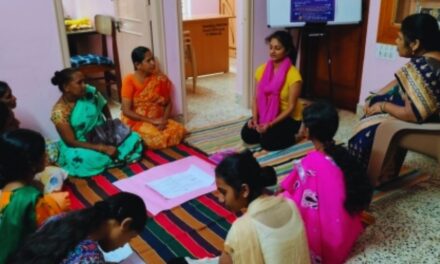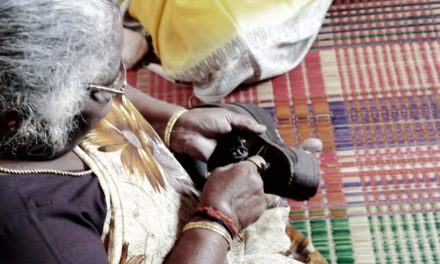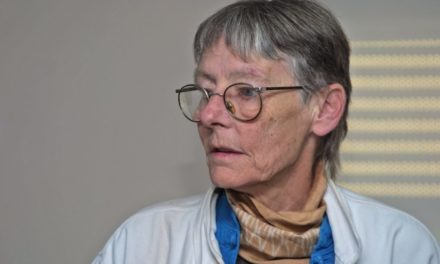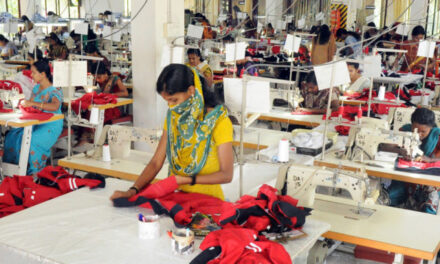It is a quiet and breezy evening in Thuthipet in Ambur, a sleepy town off the Bengaluru-Chennai highway. A team of us from Cividep walks into the narrow Indira Nagar lane by the Palar river. We are looking for a lesser-known facet of Ambur: the tireless women workers who painstakingly work from home to stitch together branded shoes for big factories. Their paychecks might be small but their welcomes are generous. Sandhya M (52) and daughter Suganya look up from their stitching of ‘uppers’ and ‘bottoms’ to offer us the ‘thinnai’. A bright mat is spread on the ‘thinnai’, the classic hangout outside traditional South Indian homes. Time seems to have stood still for Sandhya and her family in many other ways. “I have been stitching uppers for 36 years, ever since I got married,” says Sandhya. Now her daughter and daughter-in-law have joined the ‘family’ enterprise. Next door, her sister-in-law Mallika too is busy with shoe work. “Doing it from the age of 8,” she chips in. Slide through these photos, videos, and read observations from the Cividep team, which was in Ambur for a bi-annual team meeting.
Ambur is one of India’s largest leather manufacturing clusters and caters to international markets. The leather factories have been outsourcing the hand-stitching of shoe parts to homemakers in and around factories for years now. Cividep’s field surveys estimate that more than 10,000 women are home-based workers, and are recruited informally through networks of intermediaries or agents of factories (report here). However, these workers are not recognised by most factories and international brands despite research reports and awareness campaigns. So, the pay is poor, health risks abound and there is no social security. The pressure during the peak season of orders is an additional burden. Cividep has been working at multiple levels to improve awareness levels among these women, and undertake research to bring to light the working conditions of such workers.
Want to assist these women and their families? Support our work here.
We have done very good work over the last 8-9 years in Ambur. This level of confidence from workers, familiarity, and trust, to build it from scratch – is a humongous task achieved. But we have miles to go still…It is important to acknowledge our achievements, especially that of the project teams that have been here for years. But we must put our heads together for what is next. What is the bigger goal we can set for ourselves that our projects can contribute to?
The visit of the team to Ambur is such a wonderful innovation! It’s a remarkable decision to reverse the travel: from the ‘centre’ to the periphery’. I’m sure that this is a conscious decision to get all of us to be more grounded in where vulnerable workers live, struggle and produce for the global markets.
After, two decades the Cividep team meeting was held at our outreach site in Ambur. It is a remarkable step. I can see the team’s natural enthusiasm in the meeting with marginalized communities and understanding their working conditions.
Capacitating worker leaders through soft skills training and public speaking will be essential. Their participation in mobilizing workers for training and awareness events is applaudable.













